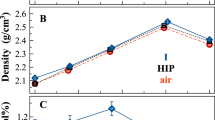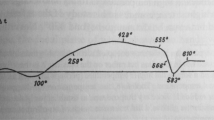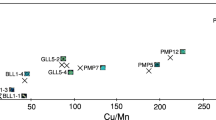Abstract
X-RAY diffraction has been used to examine vitreous silica prepared by different methods, and also to study a series of soda-silica glasses subjected to thermal treatments of different duration. Experimental conditions: filtered K copper rays ( = 1.538 A.) were used, the diameter of the cylindrical camera being 29.0 mm.
This is a preview of subscription content, access via your institution
Access options
Subscribe to this journal
Receive 51 print issues and online access
$199.00 per year
only $3.90 per issue
Buy this article
- Purchase on Springer Link
- Instant access to full article PDF
Prices may be subject to local taxes which are calculated during checkout
Similar content being viewed by others
References
Randall, Rooksby and Cooper, Z. Krist., 75, 196 (1930).
Warren, Amer. Ceram. Soc., 17, 249–254 (1934).
Warren and Loring, Amer. Ceram. Soc., 18, 269–276 (1935).
Warren, Z. Krist., 86, 349 (1933). Phys. Rev., 45, 657 (1934).
Author information
Authors and Affiliations
Rights and permissions
About this article
Cite this article
VALENKOF, N., PORAY-KOSHITZ, E. X-Ray Investigation of the Glassy State. Nature 137, 273–274 (1936). https://doi.org/10.1038/137273b0
Published:
Issue Date:
DOI: https://doi.org/10.1038/137273b0
Comments
By submitting a comment you agree to abide by our Terms and Community Guidelines. If you find something abusive or that does not comply with our terms or guidelines please flag it as inappropriate.



